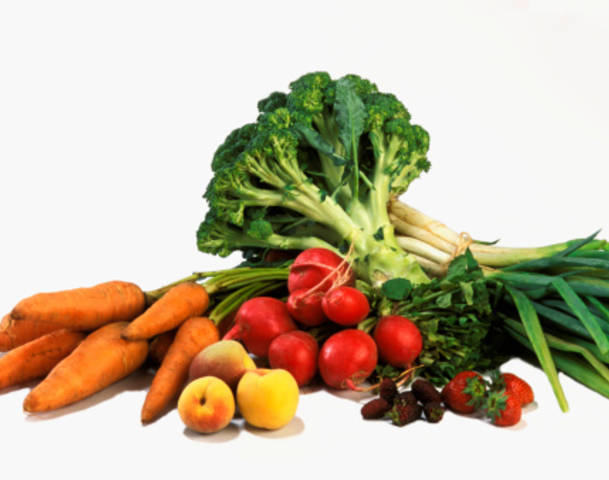Following six diet guidelines can reduce your cancer risk, researchers say. The advice is a combination of what foods to limit or avoid, and which ones to eat.
The recommendations, which appear in the June 30 issue of the Journal of the American College of Nutrition, were spearheaded by the Physicians Committee for Responsible Medicine (PCRM), a Washington, D.C.-based nonprofit group known for its advocacy of plant-based diets and alternatives to research on animals.
Perhaps not surprising for an organization that encourages plant-based diets, the advice highlighted the benefits of fruits and vegetables, and recommended limited consumption of meat. But dieticians and doctors not involved with the report say the guidelines are reasonable.
The guidelines are based on a review of published studies, albeit cherry-picked to highlight the advantages of a plant-based diet. The recommendations are to eat more fresh vegetables and fruits; eat more soy products; limit dairy; limit or avoid alcohol; avoid red meats and processed meats; and avoid grilled, broiled or fried meats. [10 New Ways to Eat Well]
“The overall recommendation is to favor plant-based foods,” said lead author Joseph Gonzales, a registered dietician with the PCRM. “Plants are rich in protective compounds, and help consumers avoid the cancer-causing substances found in animal products.”
PCRM’s recommendations are similar to those offered by cancer research organizations such as the American Cancer Society, although arguably more extreme in terms of what they say to avoid.
“It’s never a bad idea to cut back” on red meat or alcohol, as the PCRM recommends, said Colleen Doyle, a registered dietician and director for nutrition and physical activity for the American Cancer Society. But you don’t need to be a teetotaler or vegetarian to significantly reduce your cancer risk, she added.
The recommendations
1. Eat more fruits and vegetables, especially leafy greens, to help reduce overall cancer risk. Most doctors agree. “It is an incontrovertible fact” that a plant-based diet lowers your risk of cancer and heart disease, said Dr. Paul Talalay, a distinguished service professor at Johns Hopkins University in Baltimore, who was not involved in this study. The reason fruits and vegetables help lower cancer risk is that they contain protective compounds, such as the phytochemicals that Talalay discovered in broccoli in the 1990s, that reduce the risk of several cancers and, as reported this June, the toxic effects of the pollutant benzene.
2. Eat soy products to reduce both the risk and recurrence of breast cancer. Soy products — such as edamame, tempeh and tofu — also have protective properties and, if substituted for red meat, can help reduce exposure to fats and other chemicals that promote cancer and heart disease.
3. Limit or avoid dairy products to reduce the risk of prostate cancer.Studies have linked dairy to prostate cancer, but the culprit might be calcium. Yet other studies suggest that consuming dairy products might prevent colorectal cancer. Dolye said men should consider limiting dairy if they have a family history of prostate cancer.
4. Limit or avoid alcohol to reduce the risk of cancers of the mouth, pharynx, larynx, esophagus, colon, rectum and breast. The PCRM reports that one drink per week increases the risk of mouth, pharynx and larynx cancers by 24 percent; two to three drinks per day increase the risk of colorectal cancer by 21 percent.
As with the dairy recommendation, the dangers depend on which studies you read. Mouth, pharynx and larynx cancers are rare in nonsmokers, so a 24-percent risk increase isn’t something to fret over. Also, a drink a day seems to promote heart health. The American Cancer Society recommends that people limit their alcohol intake to no more than two drinks per day for men, and one per day for women (in part because of women’s smaller average body size).
5. Avoid red and processed meats to reduce the risk of cancers of the colon and rectum. Following this advice may help prevent heart disease, stroke and diabetes. Large studies from the Harvard School of Public Health revealed that regular consumption of red meat — particularly processed meats such as sausages and cold cuts — will shorten your life.
This news doesn’t need to ruin your summer cookout plans. Doyle said to “exercise common sense” and that the occasional hamburger or hotdog, even grilled (uh-oh, see the next recommendation), is fine. The broader issue, she said, is reducing consumption to reduce risk, given your risk profile and family history.
6. Avoid grilled, fried and broiled meats to reduce the risk of cancers of the colon, rectum, breast, prostate, kidney and pancreas. The reason is that cancer-causing chemicals called heterocyclic amines (HCAs) are created when creatine and amino acids in skeletal muscle, aka meat, are cooked at high temperatures. Even the smoke from grilled meat can contaminate grilled vegetables, which otherwise don’t have HCAs.
Cancer risk reduction doesn’t guarantee cancer avoidance. According to the World Health Organization, up to 30 percent of all cancers might be caused by a poor diet. The rest are attributed to smoking, pollution and genetics, which may affect you no matter what you eat.
Source: yahoo news


